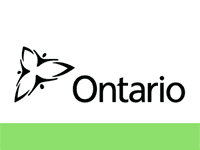Protestors have made a presence outside many schools across the country, including some UCDSB schools and schools from other local boards over the way that sex education curriculum is being taught. The protests also relate to the way in which information about sexual and gender identity is communicated – or sometimes not communicated – by school staff to parents.
The so-called “1 Million March 4 Children” drew a crowd of people in Ottawa on September 20. Present on site were both protestors and counter-protestors. The issue has divided people sharply, as social media has become flooded with examples of diagrams on some school walls showing things such as the huge multitude of sexual orientations that are now recognized.
The issue has caused some parents to go so far as claiming that schools are attempting to indoctrinate or “groom” students into displaying sexualized behaviours. The UCDSB released a statement to parents that included a sentiment communicated by other boards as well: “The UCDSB does not tell students and staff who they should be, and welcomes them as they are. “
Is there any reason for parents to be alarmed? I can’t speak for all schools across the country, but I can certainly speak for the few schools in the local area in which I have worked over the course of many years. For starters, teachers have no interest in indoctrinating children. Rare is it that a teacher enters their profession for any reason besides having a true passion for helping children grow and succeed. To think that thousands upon thousands of teachers are colluding in teaching children inappropriate things is ridiculous. Every teacher I know would stand up to such a practice and would refuse to teach things they felt were morally wrong.
Next, from my own experience as a parent, any time a sex education lesson is coming up, a notice form is sent out with the exact curriculum, and a hassle free opt-out option is given. Have other parents not received these notices? Why not simply sign the form instead of storming Parliament Hill? To be honest, in the curriculum we were given last year for our 11 year old, everything seemed age appropriate and we were fine having him attend the lessons.
Finally, in terms of communicating children’s sexual and gender identity revelations to parents, this is where things get tricky. As a mental health counsellor, I can confirm one thing for certain: when children are in counselling, it is understood that parents do NOT have an absolute right to know everything in their child’s counselling file. Why? Because counselling would be much less effective, that’s why. I have had my most successful sessions with children whose parents let their kids speak in confidence with me. It can take a lot of courage for children to talk about their problems. It completely defeats the purpose of having a “system” if the response of the “system” is to break children’s confidences.
That said, there is a different way that I believe we should be approaching this, because if we do not learn from history, we are doomed to repeat it. It was less than 30 years ago that the last residential school closed. Indigenous Peoples suffered immense intergenerational trauma – students suffered abuses, cultural genocide, and the removal from their families, and parents were stripped of not only their children, but their parental rights. Schools keeping secrets from parents is not a good look in the aftermath of this system.
The way that we should be approaching this is simple: parents deserve to be updated on things concerning their children (up to a certain age and maturity level cut off), but the process must keep in mind both collaboration with the student, and safeguards against parental abuse. For example, if a student discloses that they are non-binary to a school staff member, the staff member’s first priority should be explaining to the student the importance of sharing this information with their parents to seek their love and guidance. The school staff member can offer to help in sharing the information with the parents, just as a counsellor is trained to do in cases of necessary disclosures to parents. If the student reveals fears that they may be emotionally or physically abused as a result of the disclosure, the staff member then has an automatic obligation to report the situation to the Children’s Aid Society. At no point does the staff member have the right to simply “sit on” the information and become a decision-maker for the student while keeping parents and authorities in the dark.
Supporting students has always been, and must continue to be, a collaboration. No parents are perfect, but we can’t forget that parents have rights, and that the act of raising a child is open to many different approaches and the passing on of a wide range of beliefs and values. When schools begin deciding what constitutes acceptable beliefs and what does not, a slippery slope is in the making. Collaboration is key in respecting both parental rights, and the rights of LGBT+ students.








